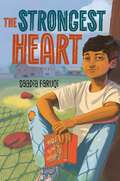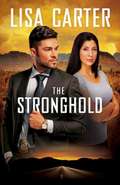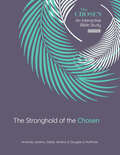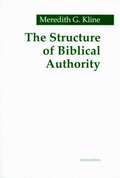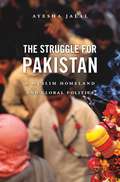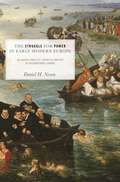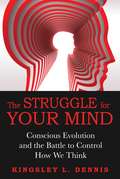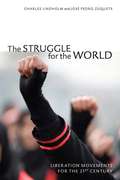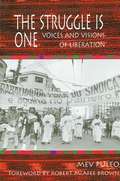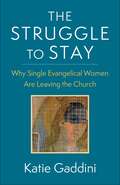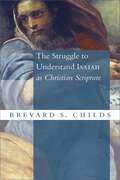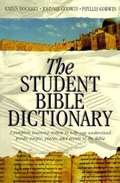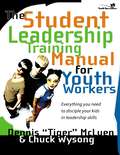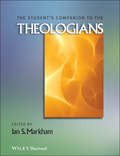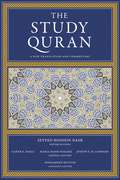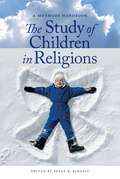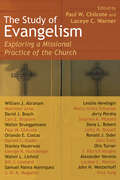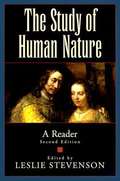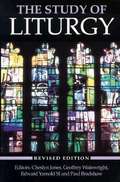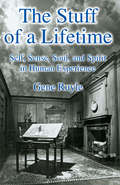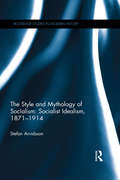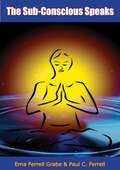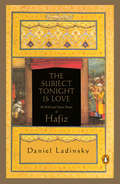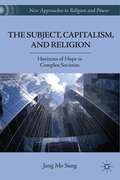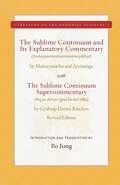- Table View
- List View
The Strongest Heart
by Saadia FaruqiFrom beloved middle grade author Saadia Faruqi comes a poignant exploration of the impact of mental illness on families—and the love and hope that it takes to begin telling a different tale. Mo is used to his father’s fits of rage. When Abbu's moods shake the house, Mo is safe inside his head, with his cherished folktales: The best way to respond is not to engage. Apparently, his mama knows that too—which is why she took a job on the other side of the world, leaving Mo alone with Abbu.With Mama gone, the two move to Texas to live with Mo’s aunt and cousin, Rayyan. The two boys could not be more different. Rayyan is achievement-driven and factual; Mo is a “bad kid." Still, there is a lot to like about living in Texas. Sundays at the mosque are better than he’d expected. And Rayyan and his aunt become a real family to Mo.But even in a warm home and school where he begins to see a future for himself, Mo knows that the monster within his father can break out and destroy their fragile peace at any moment…
The Stronghold
by Lisa CarterDrug violence, revenge killings, and kidnapping are nothing new along the U.S.-Mexican border. But now teenage girls are disappearing from the Apache reservations of Arizona and New Mexico. Apache tribal cop Pilar To-Clanny and FBI Special Agent Alex Torres have a long and tumultuous history. When someone close to them disappears, Pilar and Alex must risk everything to rescue the child, including facing the unresolved issues of the past, and venture into the no-man’s land of the drug cartels.Can Pilar and Alex work together to stop a sadistic killer before he strikes again? On a quest to rescue those they love, who will rescue them?
The Stronghold of the Chosen: An Interactive Bible Study Season 5 (The Chosen Bible Study Series #5)
by Amanda Jenkins Dallas Jenkins Dr. Douglas S. HuffmanA Bible study for people who need a safe place in Jesus, The Stronghold of the Chosen helps readers see Him as the refuge we desperately need. What is a stronghold? Well, a stronghold is a place of safety, fortified to protect inhabitants against attack. It&’s a place where people can feel secure, surrounded by high, sturdy walls. It&’s a place to rest and be restored. It&’s a place to plan the way forward. It&’s a place. Throughout the Bible, we&’re told that God is the Stronghold for those who follow Jesus, that He&’s our refuge in hard times and that in His presence our resources can be renewed. But sometimes we resist running to Jesus. Like the crowds on that first Palm Sunday, we vacillate between declaring Him Hosanna (&“the One who saves&”) and forfeiting the very safety and security He graciously provides. In The Stronghold of the Chosen, the season 5 Bible study, we&’ll learn that Jesus is our safe place, along with all the reasons we should run to and remain in Him when hard times come.
The Structure of Biblical Authority (2nd edition)
by Meredith G. KlineThe initial concern with the canonical aspect of Scripture led inevitably to reexamination of the formal character of Scripture as such. "What is the Bible?" became a central question, and it receives here a somewhat distinctive answer, in line with the new direction taken in the formulation of biblical canonicity. Because of the limitations of the author's field of specialization the focus of these studies is on the Old Testament, but some suggestions are ventured for the extension of the main theses into the New Testament.
The Struggle for Pakistan
by Ayesha JalalEstablished as a homeland for India’s Muslims in 1947, Pakistan has had a tumultuous history that has unfolded in the vortex of dire regional and international conflicts. Beset by assassinations, coups, ethnic strife, and the breakaway of Bangladesh in 1971, the country has found itself too often contending with religious extremism and military authoritarianism. Now, in a probing biography of her native land amid the throes of global change, Ayesha Jalal provides an insider’s assessment of how this nuclear-armed Muslim nation evolved as it did and explains why its dilemmas weigh so heavily on prospects for peace in the region. <p><p> Attentive to Pakistan’s external relations as well as its internal dynamics, Jalal shows how the vexed relationship with the United States, border disputes with Afghanistan in the west, and the conflict with India over Kashmir in the east have played into the hands of the generals who purchased security at the cost of strong democratic institutions. Combined with domestic ethnic and regional rivalries, such pressures have created a siege mentality that encourages military domination and militant extremism. <p> Since 9/11, the country has been widely portrayed as a breeding ground for Islamic terrorism. Assessing the threats posed by Al-Qaeda and the Taliban as American troops withdraw from Afghanistan, Jalal contends that the battle for Pakistan’s soul is far from over. Her definitive biography reveals how pluralism and democracy continue to struggle for a place in this Muslim homeland, where they are so essential to its future.
The Struggle for Power in Early Modern Europe: Religious Conflict, Dynastic Empires, and International Change (Princeton Studies in International History and Politics #116)
by Daniel H. NexonScholars have long argued over whether the 1648 Peace of Westphalia, which ended more than a century of religious conflict arising from the Protestant Reformations, inaugurated the modern sovereign-state system. But they largely ignore a more fundamental question: why did the emergence of new forms of religious heterodoxy during the Reformations spark such violent upheaval and nearly topple the old political order? In this book, Daniel Nexon demonstrates that the answer lies in understanding how the mobilization of transnational religious movements intersects with--and can destabilize--imperial forms of rule. Taking a fresh look at the pivotal events of the sixteenth and seventeenth centuries--including the Schmalkaldic War, the Dutch Revolt, and the Thirty Years' War--Nexon argues that early modern "composite" political communities had more in common with empires than with modern states, and introduces a theory of imperial dynamics that explains how religious movements altered Europe's balance of power. He shows how the Reformations gave rise to crosscutting religious networks that undermined the ability of early modern European rulers to divide and contain local resistance to their authority. In doing so, the Reformations produced a series of crises in the European order and crippled the Habsburg bid for hegemony. Nexon's account of these processes provides a theoretical and analytic framework that not only challenges the way international relations scholars think about state formation and international change, but enables us to better understand global politics today.
The Struggle for Your Mind: Conscious Evolution and the Battle to Control How We Think
by Kingsley L. DennisA revolutionary call to overthrow society’s mental controls and expand consciousness for the greater good of humanity • Explores the tactics used to control consciousness, such as misinformation, debt systems, fear conditioning, and the distraction of entertainment and technology • Reveals the emerging mechanisms for neurogenetic evolution within our brains that will enable us to throw off the shackles of mental control • Explains how to break through the barriers inhibiting conscious evolution and restore our connection with Nature and the Divine Within society there exists a silent war. The battlefield is our everyday lives: our education, our work, our leisure, our emotional and spiritual well-being, and our thinking and perceptions. Our very sense of “reality” is deliberately engineered to work against conscious evolution and preserve social norms. In short, we are all part of a war of consciousness. And the opportunity is at hand for us to win. Assessing the ways modern societies limit consciousness and keep humanity obedient and distracted from their inner lives, Kingsley Dennis presents an eye-opening investigation of the way our minds have been programmed to preserve incumbent power structures and their rules. He exposes the tactics employed for thousands of years by the elite to control our minds, including misinformation and propaganda, debt systems, consumerism, religious doctrine, scientific authority, economic “uncertainties,” fear of terrorist attacks and armageddon, distraction through entertainment and technology, as well as the false belief that we are separate from Nature and the Divine. Despite these obstacles, humanity is awakening to culture’s imposed limits on perception through an accelerating rise in collective empathy and awareness. Exploring the biology of consciousness, Dennis reveals the emerging mechanisms for neurogenetic evolution within the brains of gifted individuals, psychics, and visionaries and the coming increases in solar and magnetic energies that will activate them within all of us. Explaining how we can free up mental and emotional energy to break through the barriers inhibiting conscious evolution, he shows that by taking back our minds and changing the way we think, we can restore our connection with Nature and the Divine and lead humanity into a new age of harmony and awareness.
The Struggle for the World: Liberation Movements for the 21st Century
by Charles Lindholm José Pedro ZúqueteThis volume employs "archival anthropology" in an attempt to understand the common characteristics of seemingly diverse movements acting in opposition to capitalist globalization around the world. The authors analyze documents associated with the movements (e. g. , communiqués, statements of purpose, et cetera) and other materials in order to explicate how the various movements see themselves and their relationship to the struggle for a better world in a series of case studies. They conclude by identifying shared features, dynamics, and goals of utopian resistance to globalization; considering why such commonalities exist; and interpreting implications. Annotation ©2010 Book News, Inc. , Portland, OR (booknews. com)
The Struggle is One: Voices and Visions of Liberation
by Mev PuleoThe Struggle is One, presents first hand information by asking incisive questions in a gentle and gracious manner. Members of Christian communities as well as bishops are given a voice. But perhaps what speaks more powerfully are the photographic images. Mev Puleo is an artist who vividly portrays the life and faith of a people.
The Struggle to Stay: Why Single Evangelical Women Are Leaving the Church
by Katie GaddiniEvangelical Christianity is often thought of as oppressive to women. The #MeToo era, when many women hit a breaking point with rampant sexism, has also reached evangelical communities. Yet more than thirty million women in the United States still identify as evangelical. Why do so many women remain in male-dominated churches that marginalize them, and why do others leave? In each case, what does this cost them?The Struggle to Stay is an intimate and insightful portrait of single women’s experiences in evangelical churches. Drawing on unprecedented access to churches in the United States and the United Kingdom, Katie Gaddini relates the struggles of four women, interwoven with her own story of leaving behind a devout faith. She connects these personal narratives with rigorous analysis of Christianity and politics in both countries, and contextualizes them through interviews with more than fifty other evangelical women. Gaddini grapples with the complexities of obedience and resistance for women within a patriarchal religion against the backdrop of a culture war. Her exploration of how women choose to leave or remain in environments that constrain them is nuanced and personal, telling powerful stories of faith, community, isolation, and loss. Bringing together meticulous research and deep empathy, The Struggle to Stay provides a revelatory account of the private burdens that evangelical women bear.
The Struggle to Understand Isaiah as Christian Scripture
by Brevard S. ChildsA key emphasis of Brevard Childs's distinguished career has been to show not only that the canon of Scripture comprises both Old and New Testaments but also that the concept of "canon" includes the way the Christian church continues to wrestle in every age with the meaning of its sacred texts. In this new volume Childs uses the book of Isaiah as a case study of the church's endeavor throughout history to understand its Scriptures.In each chapter Childs focuses on a different Christian age, using the work of key figures to illustrate the church's changing views of Isaiah. After looking at the Septuagint translation, Childs examines commentaries and tractates from the patristic, Reformation, and modern periods. His review shows that despite an enormous diversity in time, culture, nationality, and audience, these works nevertheless display a "family resemblance" in their theological understandings of this central Old Testament text. Childs also reveals how the church struggled to adapt to changing social and historical conditions, often by correcting or refining traditional methodologies, while at the same time maintaining a theological stance measured by faithfulness to Jesus Christ. In an important final chapter Childs draws out some implications of his work for modern debates over the role of Scripture in the life of the church.Of great value to scholars, ministers, and students, this book will also draw general readers into the exciting theological debate currently raging in the Christian church about the faithful interpretation of Scripture.
The Student Bible Dictionary: A Complete Learning System to Help You Understand Words, People, Places, and Events of the Bible
by Karen Dockrey Johnnie Godwin Phyllis GodwinHere's a concise, easy-to-use reference book for students of all ages who seek to learn more about the Bible and its times. The Student Bible Dictionary features definitions and explanations of hundreds of Bible words, names, places, and concepts. Special color coding, meanwhile, adds special emphasis to important topics which feature additional information geared toward the student reader. From AARON to ZIPPORAH, the Student Bible Dictionary is a whole library of accessible, useful information!
The Student Leadership Training Manual for Youth Workers: Everything You Need to Disciple Your Kids in Leadership Skills
by Chuck Wysong Dennis Tiger McluenAs profound, as relevant, as funny as you are . . . teenagers still listen to each other more than to an adult youth worker. You may grimace, but you can’t deny it--students talking to each other usually means more to them than adults talking to them. The Student Leadership Training Manual helps you equip your senior highers for leading their peers and taking charge of as much of the ministry as they want or are able-- helping and evangelizing their peers . . . organizing ministry teams . . . planning and executing their own youth ministry programming. Here are 31 training sessions for discipling student leaders in a small-group setting--sessions that start in the Bible and reach deep into teenagers’ experience . . . ready for you to implement a clear and effective program that trains your students for higher levels of leadership, regardless of where they are now. Plus 24 pages just for you, a veritable primer on how to cultivate student leadership: The role of adults Authority vs. responsibility Setting student leaders up for success Teaching students not just the whats, but the whys and hows Helping them discover their spiritual giftedness Perfect for youth workers, CE directors, associate pastors, and small-group leaders--anyone who works with a youth group’s core kids.
The Student's Companion to the Theologians
by Ian S. MarkhamThis companion brings together a team of contemporary theologians and writers to provide substantial introductions to the key people who shaped the Christian story and tradition.A substantial reference work, bringing together over 75 entries on the most important and influential theologians in the history of ChristianityStructured accessibly around five periods: early centuries, middle ages, reformation period, the Enlightenment, and the twentieth-century to the presentA to Z entries range from substantial essays to shorter overviews, each of which locates the theologian in their immediate context, summarizes the themes of their work, and explains their significanceCovers a broad span of theologians, from Augustine to Thomas Aquinas, through to C. S. Lewis, James Cone, and Rosemary Radford ReutherProvides profiles of key Catholic, protestant, evangelical, and progressive theologiansIncludes a useful timeline to orientate the reader, reading lists, and a glossary of key terms
The Study Quran: A New Translation and Commentary
by Seyyed Hossein Nasr Maria Massi Dakake Mohammed Rustom Joseph E.B. Lumbard Caner K. DagliAn accessible and accurate translation of the Quran that offers a rigorous analysis of its theological, metaphysical, historical, and geographical teachings and backgrounds, and includes extensive study notes, special introductions by experts in the field, and is edited by a top modern Islamic scholar, respected in both the West and the Islamic world.Drawn from a wide range of traditional Islamic commentaries, including Sunni and Shia sources, and from legal, theological, and mystical texts, The Study Quran conveys the enduring spiritual power of the Quran and offers a thorough scholarly understanding of this holy text.Beautifully packaged with a rich, attractive two-color layout, this magnificent volume includes essays by 15 contributors, maps, useful notes and annotations in an easy-to-read two-column format, a timeline of historical events, and helpful indices. With The Study Quran, both scholars and lay readers can explore the deeper spiritual meaning of the Quran, examine the grammar of difficult sections, and explore legal and ritual teachings, ethics, theology, sacred history, and the importance of various passages in Muslim life.With an introduction by its general editor, Seyyed Hossein Nasr, here is a nearly 2,000-page, continuous discussion of the entire Quran that provides a comprehensive picture of how this sacred work has been read by Muslims for over 1,400 years.
The Study of Children in Religions: A Methods Handbook
by Susan B. RidgelyResearch in religious studies has traditionally focused on adult subjects since working with children presents significantly more challenges to the researcher, such as getting the research protocol passed by the Internal Review Board, obtaining permission from parents and schools, and figuring out how to make sense of young worldviews. The Study of Children in Religions provides scholars with a comprehensive source to assist them in addressing many of the issues that often stop researchers from pursuing projects involving children. This handbook offers a broad range of methodological and conceptual models for scholars interested in conducting work with children. It not only illuminates some of the legal and ethical issues involved in working with youth and provides guidance in getting IRB approval, but also presents specific case studies from scholars who have engaged in child-centered research and here offer the fruits of their experience. Cases include those that use interviews and drawings to work with children in contemporary settings, as well as more historically focused endeavors to use material culture—such as Sunday school projects or religious board games—to study children’s religious lives in past eras. The Study of Children in Religions offers concrete help to those who wish to conduct research on children and religion but are unsure of how to get started or how to frame their research.
The Study of Evangelism: Exploring a Missional Practice of the Church
by Laceye C. Warner Paul ChilcoteChristians and communities of faith today are rediscovering evangelism as an essential aspect of the church's mission. Many of the resulting books in the marketplace, however, have a hands-on orientation, often lacking serious theological engagement and reflection. Bucking that how-to trend,The Study of Evangelism offers thirty groundbreaking essays that plumb the depths of the biblical and theological heritage of the church with reference to evangelistic practice. Helpfully organized into six categories, these broad, diverse writings lay a solid scholarly foundation for meaningful dialogue about the church's practice of evangelism.
The Study of Human Nature: A Reader (Second Edition)
by Leslie StevensonThis anthology provides an introduction to a variety of views about human nature, from various cultures over three millennia. It ranges from ancient religious texts down to contemporary theories based on evolutionary science. It can be used as a reader to go along with Ten Theories of Human Nature 4e, but it can also be used independently.
The Study of Liturgy
by Geoffrey Wainwright Cheslyn Jones Paul Bradshaw Edward S. YarnoldCompletely revised to incorporate new scholarship and many important developments in liturgical renewal, this standard text remains an essential tool for students of theology and liturgy. It treats the development of the liturgy historically, beginning with Jewish antecedents, then covering the New Testament, Patristic, Medieval, and Reformation periods, and concluding with the increasing interest in liturgy in all churches today. The text deals definitively with the five central rites of Christian worship: Initiation, the Eucharist, Ordination, the Daily Office, and the Calendar. A special section on liturgical settings examines in detail the historical importance of music and singing in the liturgy and the role of hymnody in Christian worship. Reflecting the continuing trend towards ecumenism, the editors represent the Anglican, Roman Catholic, and Protestant traditions, while the Orthodox tradition is represented by the team of contributors, which includes many of the best-known liturgical scholars.
The Stuff of a Lifetime: Self, Sense, Soul, and Spirit in Human Experience
by Gene RuyleA book to help people understand what they are doing with their lives. Addressing its readers directly and as individuals, this book allows them to move through it in their own way. It takes them on a wide-ranging expedition into their lives, so that they may be better guided by their own uniqueness. It seeks to enkindle within people the desire to reclaim their bodies, recover their souls, and re-enter the world. "A book that should make a name for Gene Ruyle as a contemporary philosopher who has something important to say. " -Atlanta Journal/Constitution (www. generuyle. com)
The Style and Mythology of Socialism: Socialist Idealism, 1871-1914 (Routledge Studies in Modern History)
by Stefan ArvidssonArguably no modern ideology has diffused as fast as Socialism. From the mid-nineteenth century to the last quarter of the twentieth socialist ideals played a crucial part not only in the political sphere, but also influenced the way people worked and played, thought and felt, designed and decorated, hoped and yearned. By proposing general observations on the relationship between socialism, imagination, myth and utopia, as well as bringing the late nineteenth century socialist culture – a culture imbued with Biblical narratives, Christian symbols, classic mythology, rituals from freemasonry, Viking romanticism, and utopian speculations – together under the novel term ‘socialist idealism’, The Style and Mythology of Socialism: Socialist Idealism, 1871–1914 draws attention to the symbolic, artistic and rhetorical ways that socialism originally set the hearts of people on fire.
The Sub-Conscious Speaks
by Erna Ferrell Grabe Paul C. FerrellContacting the Sub-Conscious, or Subjective mind, without loss of conscious identity has long been sought. This feat has here unquestionably been accomplished. The contents of the book proper belong entirely to the author’s Subjective mind. Yet at no time was there a loss of conscious control and direction, nor was the author at any time in any other than a perfectly normal condition.It is not deemed necessary to state the manner in which this contact was established. Suffice it to say that sufficient tests and experiments were made to convince the author and others that they were dealing with the author’s Subjective mind.
The Subject Tonight Is Love: 60 Wild and Sweet Poems of Hafiz (Compass)
by Daniel Ladinsky HafizTo Persians, the fourteenth-century poems of Hafiz are not classical literature from a remote past, but cherished love, wisdom, and humor from a dear and intimate friend. Perhaps, more than any other Persian poet, it is Hafiz who most fully accesses the mystical, healing dimensions of poetry. Daniel Ladinsky has made it his life's work to create modern, inspired translations of the world's most profound spiritual poetry. Through Ladinsky's translations, Hafiz's voice comes alive across the centuries singing his message of love.
The Subject, Capitalism, and Religion
by Jung Mo SungIn order to fight for a more just society, it is necessary to elaborate upon the theoretical reflections that critically analyze the faith and myths that support and legitimize the trajectory of contemporary capitalism and its utopia, as well as the faith and the complex relation that exists in between the notions of the subject and societies.
The Sublime Continuum and Its Explanatory Commentary: With the Sublime Continuum Supercommentary - Revised Edition (Treasury of the Buddhist Sciences)
by Bo JiangExplore an in-depth explanation of buddha nature and self-emptiness.The original Sublime Continuum Explanatory Commentary was written by Noble Asanga to explain the verses received from the bodhisattva Maitreya in the late fourth century CE in northern India. Here it is introduced and presented in an original translation from Sanskrit and Tibetan, with the translation of an extensive Tibetan Supercommentary by Gyaltsap Darma Rinchen (1364–1432), whose work closely followed the view of his teacher, Tsong Khapa (1357–1419). Contemporary scholars have widely misunderstood the Buddhist Centrist (Madhyamaka) teaching of emptiness, or selflessness, as either a form of nihilism or a radical skepticism. Yet Buddhist philosophers from Nagarjuna on have shown that the negation of intrinsic reality, when accurately understood, affirms the supreme value of relative realities. Gyaltsap Darma Rinchen, in his Supercommentary, elucidates a highly positive theory of the buddha nature, showing how the wisdom of emptiness empowers the compassionate life of the enlightened, as it is touched by its oneness with the truth body of all buddhas. With his clear study of Gyaltsap&’s insight and his original English translation, Bo Jiang completes his historic project of studying and presenting these works from Sanskrit and Tibetan in both Chinese and, now, English translations, in linked publications.
